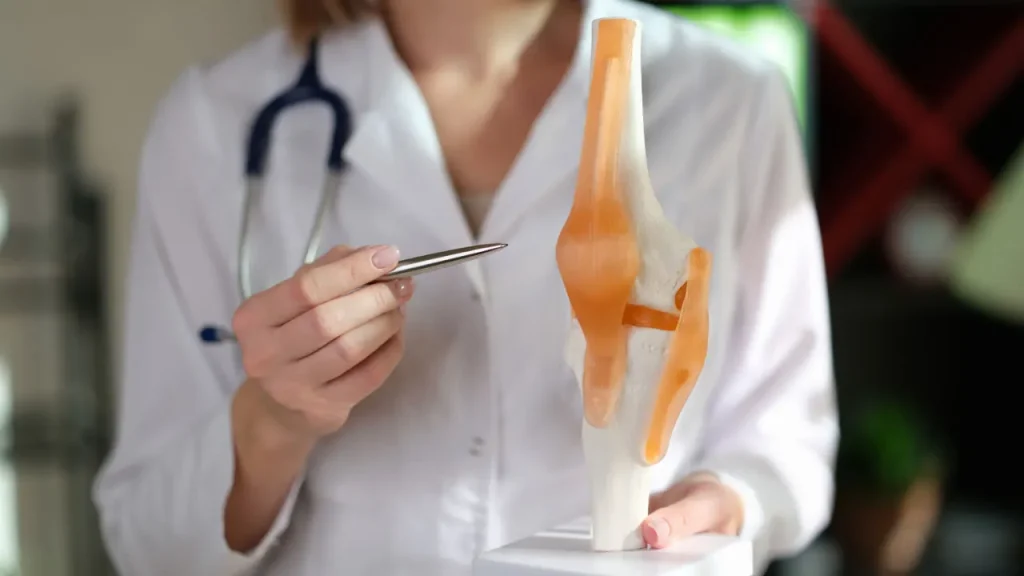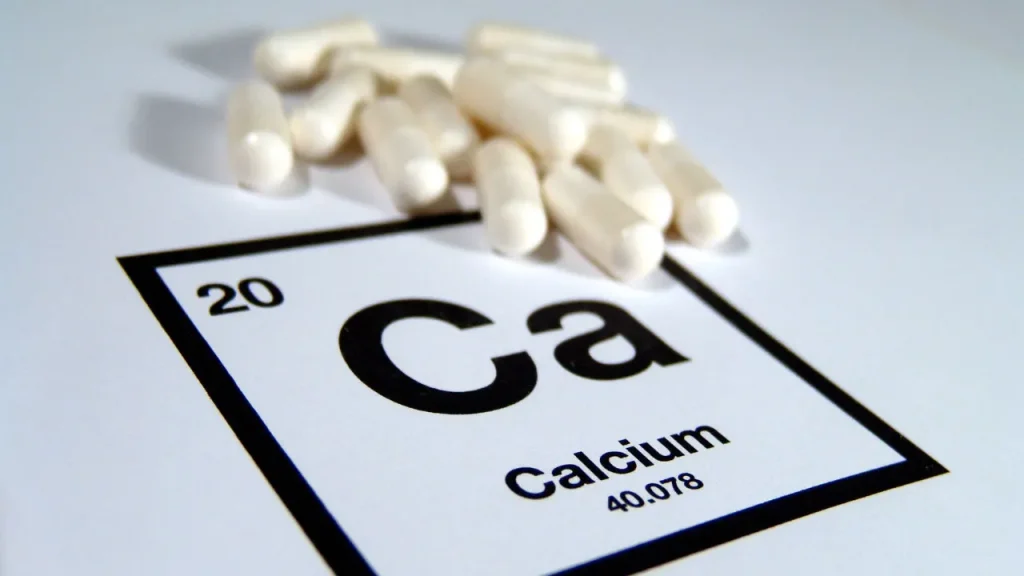Widely used dietary supplement bovine cartilage has drawn interest for its conceivable health advantages. It is a traditional treatment for multiple illnesses and support for general health that is derived from cow cartilage. Scientific investigation into this supplement’s content, modes of action, and possible health advantages have increased due to, growing public interest. With a focus on its chemistry, physiological effects, ideal dose, possible side effects, and interactions with other drugs, this page aims to offer a thorough summary of the state of the science on bovine cartilage.
You May Also Like:
The Best Supplements for Memory and Brain Fog: 5 Top Brands Reviewed
Bovine Cartilage: Benefits, Dosage, Side Effects, Drug Interactions, and Other Important Information is an original (NootropicsPlanet) article.
Nature of Bovine Cartilage
The musculoskeletal system’s cartilage is made up of chondrocytes, extracellular matrix (ECM), and ground material. Glycosaminoglycans (GAGs), proteoglycans, collagen, and bioactive peptides are only a few of the bioactive substances that are abundant in cartilage, particularly in bovine cartilage.
Long, unbranched polysaccharides made up of repeating disaccharide units are known as glycosaminoglycans. Chondroitin sulfate, keratan sulfate, and hyaluronic acid are the three GAGs most often detected in bovine cartilage. Proteoglycans, on the other hand, are substantial molecules made up of GAG chains and a central protein. Aggrecan, the main proteoglycan in bovine cartilage is essential for supplying resistance to compressive stresses.
The main structural protein in cartilage, collagen, is made up of amino acids that are organized in a triple helix. Type II collagen provides tensile strength and resistance to shear pressures and it is the main component of bovine cartilage. Furthermore, it has been shown that bioactive peptides produced by the enzymatic hydrolysis of cartilage proteins display a variety of biological activities, including antioxidant, anti-inflammatory, and antibacterial characteristics.
Health Benefits of Bovine Cartilage
Supplementing with bovine cartilage has been linked to numerous health advantages, including improved joint function, faster healing of wounds, and possible anticancer effects.
1. Supporting Joint Health
Supporting joint health is one of the main applications of supplements made from bovine cartilage. In individuals with osteoarthritis (OA), the amount of chondroitin sulfate, glucosamine, and type II collagen in bovine cartilage has been associated with enhanced joint function and decreased inflammation. It is thought that the control of cartilage metabolism is carried out by blocking the development of matrix metalloproteinases (MMPs). MMPs are the enzymes that are responsible for the breakdown of ECM components.
2. Healing of Wounds
Bovine cartilage’s capacity to stimulate the generation of growth factors and control inflammation has been found to help wound healing. Studies have shown that topical administration of bovine cartilage extracts may promote angiogenesis, collagen production, and re-epithelialization, which can speed up the healing process in both acute and chronic wounds.
3. Cancer-Preventive Qualities
Bovine cartilage may have potential anticancer qualities, according to early investigations. Bovine cartilage extracts have been shown to be able to reduce tumor development, invasion, and angiogenesis in both in vitro and animal experiments. This is mostly due to the reduction of pro-angiogenic factors such as vascular endothelial growth factor (VEGF) and fibroblast growth factor (FGF).

Chemistry of Bovine Cartilage
The lengthy, unbranched polysaccharides known as glycosaminoglycans (GAGs) are made up of repeating disaccharide units. Chondroitin sulfate, keratan sulfate, and hyaluronic acid are the three GAGs most often detected in bovine cartilage. Particularly chondroitin sulfate is well-recognized for its capacity to hold onto water, giving cartilage its distinctive toughness and shock-absorbing qualities.
Proteoglycans are substantial polymers made up of GAG chains and a core protein. Aggrecan, the main proteoglycan in bovine cartilage, is essential for supplying resistance to compressive stresses. Large aggregates are created when aggrecan and hyaluronic acid combine and then add to the cartilage’s viscoelastic qualities.
As previously mentioned, type II collagen is the main component of bovine cartilage and it provides tensile strength and resistance to shear pressures. Chondrocytes produce type II collagen and release it into the extracellular matrix where it assembles into a fibril network that gives cartilage its structural stability.
It has been shown that bioactive peptides produced by the enzymatic hydrolysis of cartilage proteins display a variety of biological activities, including antioxidant, anti-inflammatory, and antibacterial qualities. Body immune response is modulated, reactive oxygen species are scavenged, and the development of harmful bacteria is inhibited by these peptides.
Physiological Mechanisms of Action of Bovine Cartilage
Mechanisms that Reduce Inflammation
Bovine cartilage supplements help by preventing the synthesis of pro-inflammatory cytokines and repressing the activation of nuclear factor-kappa B (NF-B), a transcription factor involved in the control of inflammatory genes, these substances modify the inflammatory response.
Regulation of Extracellular Matrix (ECM)
Chondroitin sulfate and glucosamine in bovine cartilage are particularly known to control extracellular matrix (ECM) metabolism. They maintain cartilage integrity and enhance joint health by preventing the development of MMPs.
Inhibition of Angiogenesis
Bovine cartilage’s putative anticancer benefits are mostly related to its capacity to prevent angiogenesis. Bovine cartilage extracts are able to do so by reducing the production of pro-angiogenic factors including vascular endothelial growth factor (VEGF) and fibroblast growth factor (FGF).
Growth-Factor Stimulation
By encouraging the synthesis of growth factors including platelet-derived growth factor (PDGF) and transforming growth factor-beta (TGF-), bovine cartilage has been demonstrated to aid in wound healing. These growth factors help promote angiogenesis, collagen production, and re-epithelialization, all of which are important steps in the healing of wounds.
Researchers and medical professionals may further examine the physiological mechanisms of action of bovine cartilage and its potential health advantages and use in a variety of medical diseases.


Optimal Dosage of Bovine Cartilage
The ideal dose of bovine cartilage is strongly influenced by variables including age, weight, and medical conditions. Adults are often advised to take 1,000–1,500 mg of bovine cartilage extract each day. However, since individual needs may differ, it is essential to speak with a healthcare provider before beginning any supplement routine.
Studies have employed glucosamine and chondroitin sulfate, both derived from bovine cartilage, at doses of 800 to 1,200 mg daily for joint health. Bovine cartilage extracts are commonly administered topically in wound healing treatments, with the concentration and frequency varied according to the size and nature of the lesion.
Side Effects of Bovine Cartilage
Supplementing with bovine cartilage is often regarded as safe when given in the recommended amounts. However, some people may have adverse reactions, such as gastrointestinal problems including bloating, constipation, and diarrhea. Additionally, allergic responses are likely, especially in those who have a documented sensitivity to bovine products.
There have been sporadic instances of bovine cartilage damaging the liver and aggravating hypercalcemia, a disorder marked by elevated blood calcium levels. Therefore, those who already have liver disease or hypercalcemia should use caution and talk to their doctor before taking supplements containing bovine cartilage.


Potential Substance Interactions with Bovine Cartilage
Certain drugs and chemicals may interact with bovine cartilage, leading to undesirable side effects or decreased effectiveness. Among the possible interactions are:
Antiplatelet and anticoagulant medications
When used with blood-thinning and antiplatelet drugs like warfarin, aspirin, and clopidogrel, dietary supplements containing bovine cartilage may increase the risk of bleeding. Therefore, those who are taking these drugs should talk to their doctor before taking supplements containing bovine cartilage.
Drugs that lower blood pressure
Chondroitin sulfate generated from bovine cartilage may interact with antihypertensive medications, perhaps lowering their efficacy in regulating blood pressure. When using supplements containing bovine cartilage, those on antihypertensive drugs should regularly check their blood pressure and seek medical advice if required.
Responsible Use and Considerations
It is essential to follow the following recommendations in order to utilize supplements made from bovine cartilage safely and effectively:
- Before beginning any supplementing plan, speak with a medical expert, particularly if you have any pre-existing problems, are pregnant or nursing, or are taking any drugs that could interact with bovine cartilage.
- Pick supplements with high-quality cow cartilage from reliable producers. Select goods that have passed independent testing for efficacy and purity.
- Adhere to the dose recommendations and instructions given by the product’s manufacturer or a medical expert.
- Keep an eye out for any side effects or unfavorable responses, and stop using the product if required.
Bovine Cartilage:
Conclusion
Bovine cartilage supplement’s primary benefit is its purported support for joint health. It contains glycosaminoglycans and proteoglycans and it can also block the damaging enzymes that harm the joint function. Aside from joint health, bovine cartilage can stimulate wound healing and prevent cancer. However, the use of bovine cartilage supplements is not only limited to these, and therefore, more comprehensive studies are needed. The optimal dosage of bovine cartilage supplement varies among people and hence, you need to see a doctor’s advice to find out your suitable dosage. It is also good to note that, allergic reactions like gastrointestinal problems may occur in some people.


References:
- The effect of oral collagen peptide supplementation on skin moisture and the dermal collagen network: Evidence from an ex vivo model and randomized, placebo-controlled clinical trials. Retrieved from: https://www.karger.com/Article/FullText/351376
- A Review of The Effects of Collagen Treatment in Clinical Studies. Retrieved from:https://www.ncbi.nlm.nih.gov/pmc/articles/PMC8620403/
- Bovine Cartilage, Coenzyme Q10, and Wheat Grass Therapy for Primary Peritoneal Cancer. Retrieved from:https://pubmed.ncbi.nlm.nih.gov/15750376/
- Effects Of Glucosamine and Chondroitin Sulfate on Cartilage Metabolism in OA: Outlook on Other Nutrient Partners Especially Omega-3 Fatty Acids. Retrieved from:https://www.ncbi.nlm.nih.gov/pmc/articles/PMC3150191/
- Dietary Supplementation with Glycosaminoglycans Reduces Locomotor Problems in Broiler Chickens. Retrieved from: https://www.ncbi.nlm.nih.gov/pmc/articles/PMC7705027/
Important Note: The information contained in this article is for general informational purposes only, and should not be construed as health or medical advice, nor is it intended to diagnose, prevent, treat, or cure any disease or health condition. Before embarking on any diet, fitness regimen, or program of nutritional supplementation, it is advisable to consult your healthcare professional in order to determine its safety and probable efficacy in terms of your individual state of health.
Regarding Nutritional Supplements Or Other Non-Prescription Health Products: If any nutritional supplements or other non-prescription health products are mentioned in the foregoing article, any claims or statements made about them have not been evaluated by the U.S. Food and Drug Administration, and such nutritional supplements or other health products are not intended to diagnose, treat, cure, or prevent any disease.
